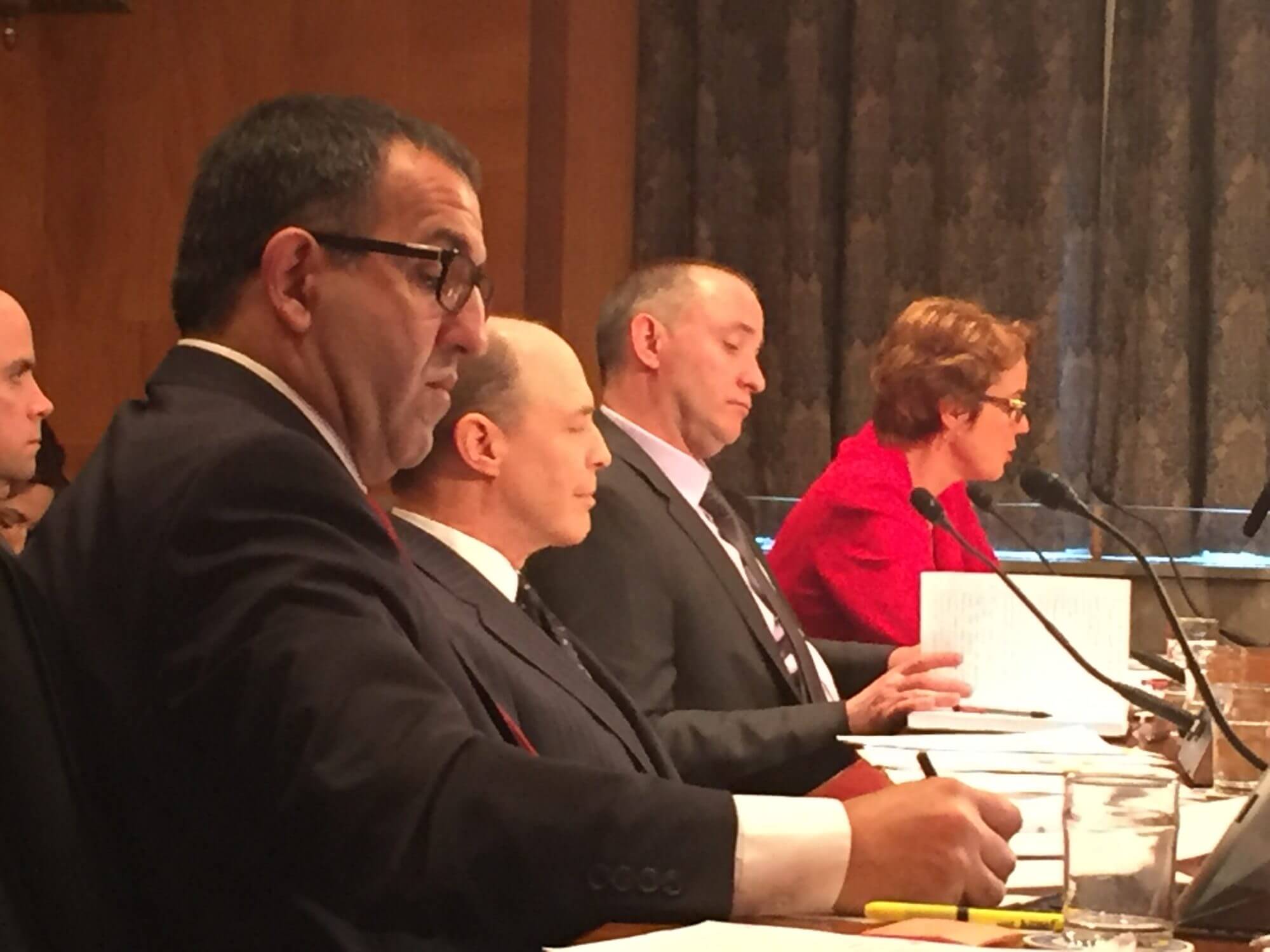WASHINGTON — Canadian Prime Minister Justin Trudeau’s plan to admit 25,000 Syrian refugees by the end of February has raised questions for the US Senate Homeland Security Committee, with some senators worried that the plan may pose a threat to national security.
The United States administers one of the most rigorous refugee screening processes in the world, running UN-approved refugees through a gauntlet of biometric tests, background checks and in-person interviews. Despite the extensive vetting procedures, contentious partisan debate has brewed in the months after terrorist attacks in Paris and San Bernardino, California, over whether refugees should enter the United States at all.
However, across the northern border, thousands of refugees began entering Canada after the newly elected Liberal government, led by Trudeau, established a goal to settle 25,000 displaced Syrians by the end of February and 50,000 total by the end of the year.
Though the committee acknowledged that Canada’s screening program resembles that of the United States, senators still wanted to assess the safety of Trudeau’s initiative.
Sen. Ron Johnson, R-Wis., the panel’s chairman, said the prospect of extremists entering Canada would undoubtedly expose America to the “real and legitimate concern” of Islamic terror, given the relatively porous border between the United States and Canada.
One witness, Dean Mandel, a border patrol agent, pointed out that unlike the extensive security presence along the US-Mexican border, far fewer officers guard the US-Canada boundary.
“I would assess that there are approximately as many Capitol Police on duty right now protecting the Capitol complex as we have on the entire 4,000-mile northern border,” Mandel said.
He argued that if potential terrorists slipped through the cracks up north and were granted admittance to Canada, they would face few barriers crossing into the United States.
According to the Canadian Embassy in Washington, Canada only grants entry to the most at-risk populations, such as women and families with young children. Laura Dawson, director of the nonpartisan Canada Institute, noted that these groups are “not an ISIS demographic.”
This didn’t entirely pacify Toronto immigration lawyer Guidy Mamann, who expressed concern that the rapid rate at which immigration officers must screen refugees puts them under a “tremendous” amount of pressure and could dilute their effectiveness.
Though senators and witnesses were split over whether Canada’s ambitious refugee program presented a threat to the US, there was near unanimous agreement that Canada and the United States should work together to strengthen communication and the security presence at the border.
Sen. Tom Carper, D-Del., the committee’s top Democrat, called Canada one of America’s closest allies, and compared the relationship to the friendly Army-Navy rivalry.
“We may wear different uniforms, but we’re on the same team,” he said.
Last year, Sens. Kelly Ayotte, R-N.H., and Heidi Heitkamp, D-N.D., both committee members, introduced a bill to strengthen US-Canadian border and expand resources available to border patrol agents. The committee approved the legislation, and on Wednesday the senators assured the panel they’ll push to bring the legislation before the full Senate.

